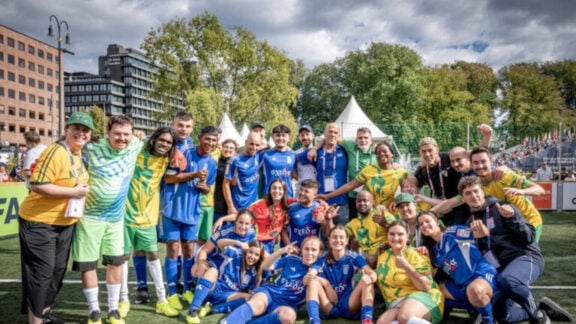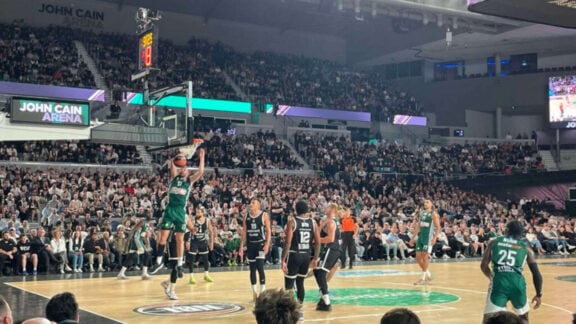Some of today’s most damaging notions of sexual norms can be traced back to early literature with Greek myths populated by otherworldly monstrous rapists.
Rape-victim-turned-monster Medusa is a prime example of victim blaming in antiquity, whereas Euripides’ Hippolytus has toxic masculinity permeating from every stanza as the titular male hero challenges sexual norms by being celibate, asexual and devoted to the worship of hunter goddess Artemis.
His refusal to worship sex goddess Aphrodite results in her taking revenge by causing Phaedra to fall in love with him, sexually harass him and make a false accusation of rape in her suicide note. He flees, disgraced.
Even his father, Theseus, prefers to accept his son as a rapist rather than acknowledge the fact that he does not fit with the definition of ‘real man’. After all, what type of man wouldn’t want heterosexual sex? How could he not be tempted to bed his young, seductive stepmother?
The manual of manhood, however, is written in Homer’s Iliad – a work whose notions of heroic masculinity are idealised by society to this very day.
Traditional male virtues found in these texts have become so entrenched in our perception of the sexes that it is hard to break stereotypes.
The Man Box, the first major Australian survey to map ideals of masculinity among young Australian males aged from 18 to 30, found that the young men surveyed in 2018 were influenced by classical ideals when it came to their attitude toward the seven pillars of traditional manhood: self-sufficiency, toughness, physical attractiveness, rigid gender roles, heterosexuality and homophobia, hypersexuality, and aggression and control over women. It was found that young men particularly agreed with statements that society expects men to act strong (69 per cent), fight back when pushed (60 per cent) and never say no to sex (56 per cent).
The unrealistic macho ideals that men are expected to live up to are harmful to men themselves. For instance, masculine stereotypes such as ‘stoicism’ and ‘invulnerability’ may result in men less likely to discuss their emotions and more inclined to turn to alcohol, drugs, crime, even suicide rather than seek emotional/psychological well-being.
READ MORE: Justice for Courtney Herron and more: Rally to end violence against women
Unfortunately, when men’s mental health problems are not addressed, they are too often expressed in harmful ways. Again and again, the warning signs are ignored or shoved under the carpet and blanketed by the old adage that ‘boys will be boys’. It is as though small acts of violence can be forgiven as a male trait, without understanding the severity of a situation.
The ABC’s profile of James Gargasoulas, the killer of six who rammed his car into pedestrians on Bourke Street, showed a man who struggled with mental health issues from childhood and who, according to his brother Angelo, was capable of extreme violence, especially towards women.
“I’ve seen him drop a woman onto the floor, drag her by the hair, knock a woman unconscious, completely,” Angelo told Four Corners.
In our society, the Safe Schools initiative aimed at promoting tolerance, reducing homophobic bullying and creating an acceptance of sexual diversity and an understanding of our own gender roles has not succeeded in bringing about a more egalitarian and harmonious society where men and women can feel comfortable in their own skins. The confusion that both sexes feel can in the worst of cases result in expressions of ‘toxic masculinity’ and ‘toxic femininity’, however while the latter is vicious, the former can kill.
Whether you believe in the existence of ‘toxic masculinity’ or not, there’s no ignoring the fact that women are usually the victims of sex crimes. In a world of Courtney Herrons so traumatised by an epidemic of violence, we do not feel safe in our own homes let alone on the well-lit streets of Melbourne after dark. And just because this is nothing new, doesn’t make it right or natural.
READ MORE: “Sexist, nationalistic and militaristic”; The environment that led to Cyprus’ first serial killer
Centuries have passed since antiquity, and yet in 2019 everything from the #metoo movement to vigils for the latest female victims of men’s rage shows that sex offender ‘monsters’ are as prevalent in the media today as they were on the ancient stage. Perhaps the first step towards solving the problem is recognising that it exists. Yes, it may be blanketed by other issues, but it is there and perhaps when we begin to see it for what it is, we may begin to build societies where our sisters, mothers and daughters can finally feel safe.









